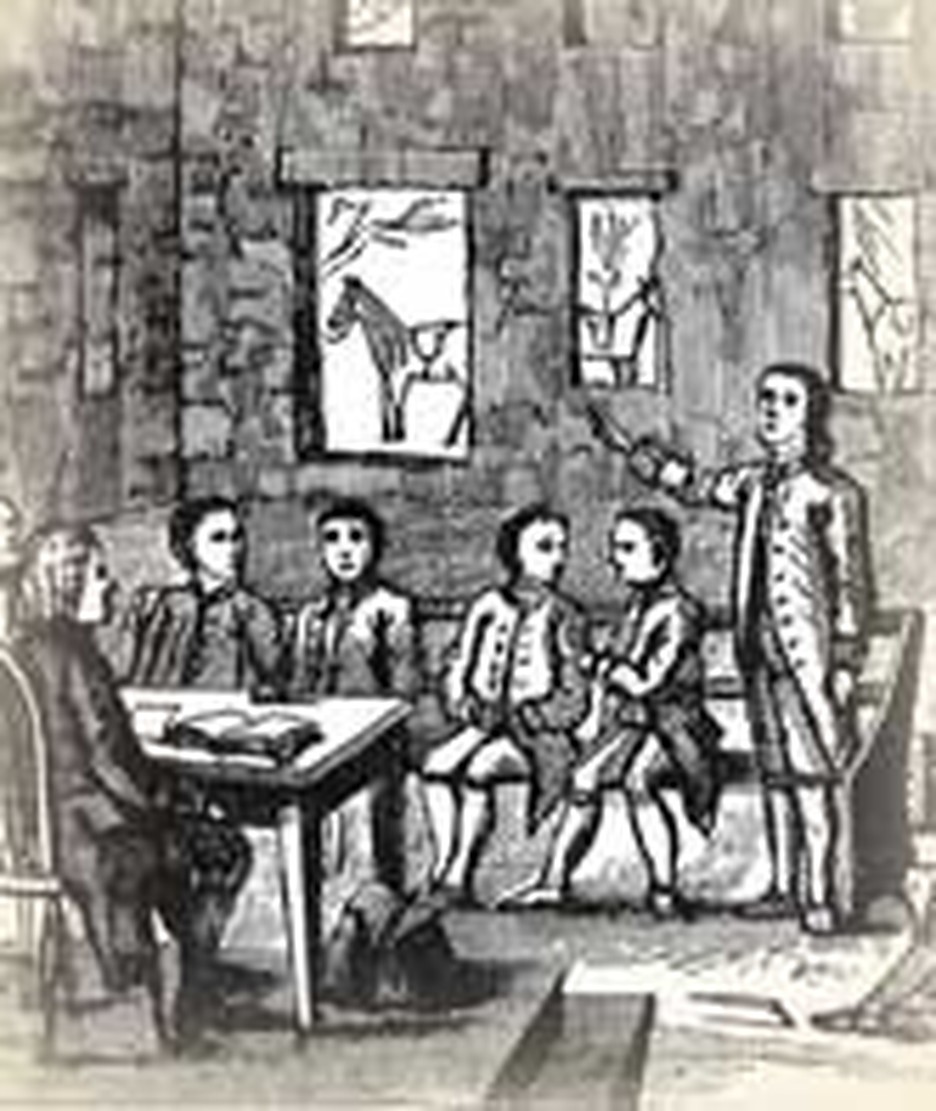
Muscle-builders and pregnant women know that anyone who grows too fast is liable to get stretch marks. Organizations that grow too rapidly can get stretch marks, too. That was the case with the Welsh Methodists in the early 1740s. Converts were coming in so fast that revival leaders were unsure how to manage the growing number of "societies" (groups of believers). The problem needed immediate attention. Field preacher Howell Harris wrote to George Whitfield, pleading for guidance. "We are all like little children, not knowing what to do," he said.
Eight Methodist leaders gathered in Waterford, South Wales, on this day January 5, 1743 to hold the first Calvinist Methodist Conference. They met at the home of Thomas Price, a layman preacher who served as Waterford's Justice of the Peace.
The best known of the eight was the evangelist George Whitfield, whose preaching on both sides of the Atlantic converted thousands to Christ. Whitfield had an extraordinary voice that could be heard without amplifiers by forty thousand people. Crowds hung on his words, which were always accompanied by dramatic gestures and deep emotion. Chosen moderator of the Waterford conference, Whitfield preached morning and evening.
Three other clergymen were present at that January 5th meeting. Daniel Rowlands was considered superior even to Whitfield in his ability to set forth the meaning of the Bible. He had formed several societies of new converts that he watched over tenderly. Of John Powell we know little; but when William Williams was converted at twenty-one, he gave up medical studies to enter the ministry. The Church of England ordained him as a deacon. He became a notable preacher and wrote the popular hymn, "Guide Me, O Thou Great Jehovah."
Chief among the lay preachers was Howell Harris, the man whose enthusiasm had originally sparked the Welsh revival. Then there was John Cennick. On one occasion, wrote Cennick, he and Harris were attacked at Swindon, England. "Mr. Goddard, a leading gentleman of the town, lent the mob his guns, halberd and engine [water pump] and bade them use us as badly as they could, only not kill us." Guns were fired so near the two that they were blackened with powder. Dust was flung on them and stinking ditch water. While the mob sprayed Harris, Cennick preached; and when they sprayed Cennick, Harris preached. Afterward, the two were burned in effigy. Cennick later became a Moravian. As for Joseph Humphreys, Whitfield used him as an assistant and exhorter.
The gathering proved harmonious. Guided by Whitfield, the eight leaders drew up regulations for their association. "I was stunned to see his amazing wisdom, wherein he is taught to manage the church, doing all calmly and wisely, following the Lord," wrote Harris. The organizers appointed ordained ministers to be overseers, each with a district under him, and appointed lay workers throughout Wales to fill two newly created offices: superintendent and exhorter. Exhorters were divided into two sorts--public (those who had the gift to speak to large crowds) and private (those who worked best with small groups and in homes). Each exhorter was put in charge of twelve to fourteen societies. The committee set duties and terms of admission for the offices. Moorfields Tabernacle, a London church, built by Whitfield in 1741, often served as his base of operations when he was in England. The Methodists designated this as their headquarters. They established a regular schedule of local and regional conferences.
Bibliography
- Belden, Albert D. George Whitefield, the awakener. New York: Macmillan, 1953.
- Christian History Vol XII No. 2.
- Dallimore, Arnold A. George Whitefield; the life and times of the great evangelist of the eighteenth-century revival. Vol II. Westchester, Ill.: Crossway, 1979.
- McGraw, James. Great Evangelical Preachers of Yesterday. New York: Abingdon, 1961.
Last updated May, 2007.


